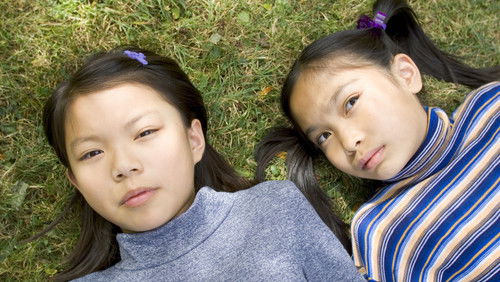Abschied in der Dämmerung (1959)
32KAbschied in der Dämmerung: Directed by Yasujirô Ozu. With Ganjirô Nakamura, Machiko Kyô, Ayako Wakao, Hiroshi Kawaguchi. The head of a Japanese theatre troupe returns to a small coastal town where he left a son who thinks he is his uncle, and tries to make up for the lost time, but his current mistress grows jealous.
“From the opening scene with the lighthouse in the distance and a bottle on the beach in the foreground (which is worthy of being a famous modern minimalist landscape painting) the view is pulled back to a shot of the lighthouse from between two boats, then to a store front. These shots are the equivalent of a powerful opening paragraph to a novel, they draw you in in anticipation of what is to come. Throughout the film the artistry of the color cinematography does not disappoint. Each scene is composed as if it were a painting and the use of color is singularly striking. A black-and-white viewing of this film would lose about 80% of its appeal.u003cbr/u003eu003cbr/u003eThe story is that of a traveling Kabuki theater troupe arriving to perform in a small Japenese village. This is not the troupeu0026#39;s first visit to the village and the leader of the troupe, Komajuro Arashi, had fathered an illegitimate boy there some eighteen years in the past. When Komajuro visits the mother of his son, for the first time in twelve years, complications ensue.u003cbr/u003eu003cbr/u003eSome remark that this is a simple story simply told. As far as its being a simple story, it is no simpler than, say, u0026quot;Othello,u0026quot; which could be summarized as u0026quot;Proud soldier meets tragic end due to jealousy.u0026quot; The treatment of the corrosive effects of jealousy, pride, deception, and male ego in u0026quot;Floating Weedsu0026quot; make for anything but a simple tale. As far as its being simply told, it is in fact most skillfully told – as the movie progresses the combination of sound and image have a subtle accumulating effect on mood, heightening awareness. It is frequently the case that the *appearance* of simplicity in a work of art, as in u0026quot;Floating Weeds,u0026quot; is difficult to achieve. u003cbr/u003eu003cbr/u003eThe music is a cross between the score for a French comedy and a work of Arvo Pärt, but it adroitly reflects the shifting moods of the film which alternate between serious and comic, sometimes being simultaneously serious and comic. Ozu does not allow his movie to become overly ponderous; it is leavened with humor. For example, when the troupe is enjoying a day at the beach one of the members says with seriousness, u0026quot;The skyu0026#39;s so blue, itu0026#39;s sad,u0026quot; to which another replies, u0026quot;Donu0026#39;t be silly, I want to eat a big cutlet.u0026quot;u003cbr/u003eu003cbr/u003eIt is difficult not to be offended by Komajurou0026#39;s physical abuse of his mistress, his son, and his sonu0026#39;s lover. And the general acceptance of male dominance is hard to digest. I am not sure what we are supposed to feel about Komajuro at the end, but I found that his particular personality flaws distanced me from any deep caring about him or his fate. I had more concern about the future of his son and the women who were involved with him.”









